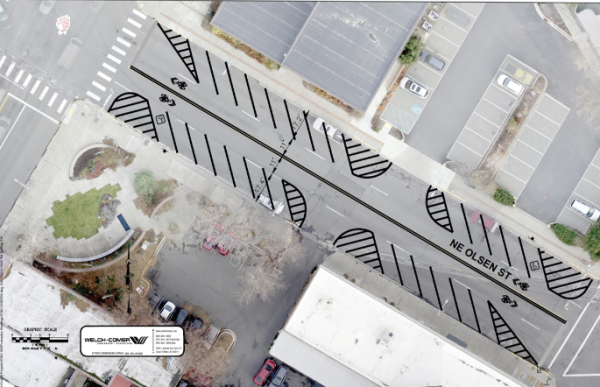Local, global community advocates for science
April 5, 2017
The first presidential budget proposal is a manifestation of some of the March for Science organizers’ and supporters’ greatest fears.
President Donald Trump’s “America First: A Budget Blueprint to Make America Great Again,” released March 16 on the White House website, cut the Environmental Protection Agency budget by 31 percent and National Institutes of Health budget by 18 percent.
Along with 428 other community-organized marches around the world, a Palouse March for Science will take place on April 22, or Earth Day, to celebrate a collective “passion for science and a call to support and safeguard the scientific community,” the event’s Facebook page stated.
The March on Science national website states its mission is to “champion robustly funded and publicly communicated science as a pillar of human freedom and prosperity,” raising awareness of the negative impact restrictions on scientists’ abilities to research will have in society.
Climate change is a point of contention in politics and one of several topics dominating national discourse.
Last week, Trump signed an executive order at the EPA, which prioritizes American jobs above climate change and loosens federal enforcement of climate regulations.
On March 13, a group of 19 Republicans passed a resolution to express “the commitment of the House of Representatives to conservative environmental stewardship,” as stated in the opening line of the resolution.
Eleven of the resolution co-sponsors are members of the bipartisan Climate Solutions Caucus, made up of 13 Democrats and 13 Republicans, within the House of Representatives.
Rep. David Reichert (R) of Washington State’s eighth district was a co-sponsor of this resolution as well as its similarly-titled counterpart from 2015, which was also backed by 17 Republican congressional members.
Conversely, Rep. Cathy McMorris Rodgers (R), representing Whitman County as part of the 5th Congressional District, is a climate change skeptic and has voted to bar the EPA from regulating greenhouse gases and to open the Outer Continental Shelf to oil drilling.
“We unite as a diverse, nonpartisan group to call for science that upholds the common good, and for political leaders and policy-makers to enact evidence-based policies in the public interest,” according to the March for Science national mission statement.
Event organizers will set up a table for people to fill out postcards advocating for science to send to local representatives.
The event is planned to begin at 1 p.m. with a gathering downtown near SE Pine and Main St. At 1:20 p.m., there will be a march to Reaney Park, followed by a lineup of speakers at 1:40 p.m., and an opportunity to meet local science groups at the park beginning at 2:30 p.m., as stated on the Facebook page.
Reporting by Jessica Zhou




















